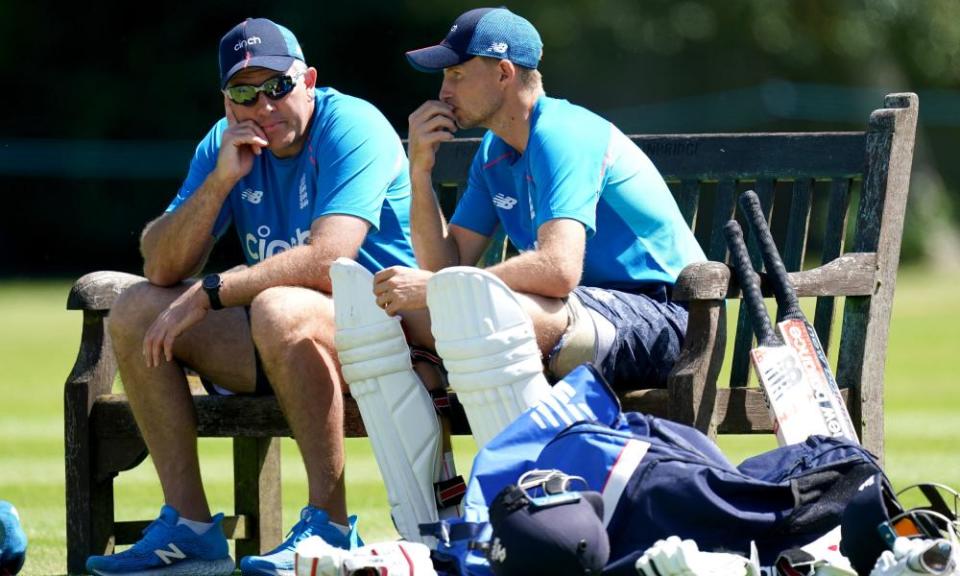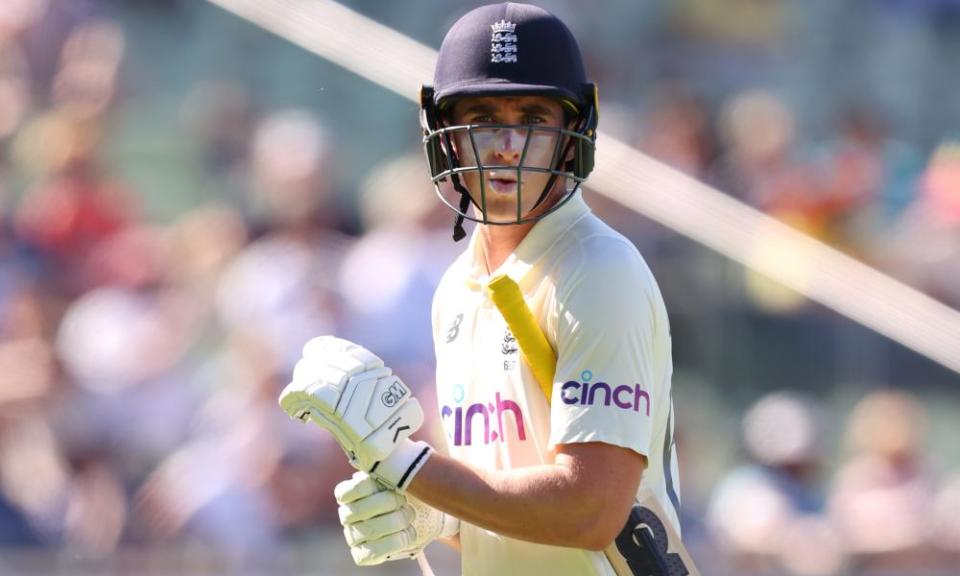Chris Silverwood points to England’s inexperience – but he is picking the team

Repeatedly, as the home team came within a raincloud of losing two Tests against a country with a fraction of their resources, England’s head coach Chris Silverwood and his camp kept talking about inexperience. His players couldn’t have attempted to score three runs per over for two sessions after a generous New Zealand declaration at Lord’s because they didn’t have the experience. They collapsed in three other innings due to inexperience. It was unfair to expect more given the players rested from the side.
Related: Five things for England to fix before the Test series against India | Tanya Aldred
There was no awareness, apparently, of something as hard to miss as the Lord’s spaceship perched at the Nursery End. Who had batted them out of the game there? A batsman playing his first Test. Who joined him in the next engagement? One playing his third Test. Devon Conway made 200 in the first innings at Lord’s and 80 at Edgbaston, where Will Young came into the team and made 82. As for missing quality players, New Zealand made six changes for the second Test and still won at a canter.
Joe Root’s 105 Tests of experience didn’t improve the fortunes of his team. “Once we get [Ben] Stokes, [Jos] Buttler, these guys back,” said Silverwood in the aftermath, “getting that experience back into the lineup will help the younger guys and pull them along as well.”
But who exactly lacks experience? Rory Burns is a county captain, 30 years old with 25 Tests. Dom Sibley has played 20 and will soon turn 26. Ollie Pope was the next big thing three years ago and has played 19 times since. Zak Crawley got that tag last summer and has crammed in 14 Tests. Plenty of excellent players in the past only totalled these sorts of numbers in entire careers. Dan Lawrence was the least experienced of the top six, playing his seventh Test at Edgbaston, and handled it the best of anyone.
Conway and Young entered the series as seasoned domestic players with years of runs banked up. The thing is, so did the English. Sibley, Burns, and Lawrence have played more first-class matches than Young, while Pope and Crawley are not far behind. The New Zealand pair played with calm and poise, spending hours in studied concentration. England’s players moved across the crease, ostensibly to leave a line that they didn’t end up leaving, and were either dismissed that way or by the vulnerability it created to the ball angled in.

After a miserable couple of matches keeping wicket and batting at seven, James Bracey won’t be helped along by Buttler’s return because Buttler will take his spot. So, too, whoever is replaced by Stokes. But the other facet of nonsense is that the top five as they were at Edgbaston would all have been in the team had Stokes and Buttler played. These are Silverwood’s first-choice players, yet their team apparently couldn’t be expected to compete.
As for the last couple of spots, Ben Foakes getting injured was bad luck, but Bracey had been chosen as his back-up. If a chase at Lord’s was too risky because Bracey or Lawrence or Crawley couldn’t be relied on, why were they in the side? Surely the players chosen to play Test cricket have to be considered competent to meet the demands of Test cricket? Or is England now choosing batsmen on the same grounds as England chooses PPE suppliers?
The limitations that Silverwood kept citing were down to the choices that Silverwood had made. He is, after all, the only one who picks a team these days. It’s not clear whether players, coach or administrators were behind the push in April that removed Ed Smith as national selector by eliminating the position entirely. Smith had a bad final month in India, but Silverwood’s insistence on four fast bowlers at Lord’s and Edgbaston, and his refusal to concede that it was a tactical mistake, suggest his influence on the four-seamers debacle in Ahmedabad.
Related: England left trailing on and off pitch by clear-thinking New Zealand | Andy Bull
The argument is that cricket’s new system works in football, with direct lines of control and accountability. Football managers, though, have plenty of players waiting on the bench, so experiments or hunches can be abandoned when they don’t work. A cricket XI can’t even be changed after an adverse result at the toss. It’s also the case that football managers get sacked with a higher frequency than those whistles that only dogs can hear. For cricket coaches to last long enough to have an influence, some insulation from accountability is for the best.
After Edgbaston, Silverwood was back to old themes. “I’ll be looking forward to galvanising that team and looking forward to the Ashes.” Much the same as his comments in May, and March, and January, treating engagements against No 1-ranked New Zealand and No 2-ranked India as “preparation” for the grudge match against No 3.
The question for the coach is whether he heads south with a planeload of players stuck in perpetual adolescence, a retinue of large adult sons, unable to take the step from county to country, always excused as learning or developing or growing. Root, too, talks about learning from losses. The lessons, though, are usually pretty apparent. Don’t get bowled out for 100. Pick a spinner on grounds where they prosper. When you don’t bother trying to win matches, you tend to lose series. And when your opponents are producing players who handle the heat but you’re not, it pays to work out why.

 Yahoo Finance
Yahoo Finance 